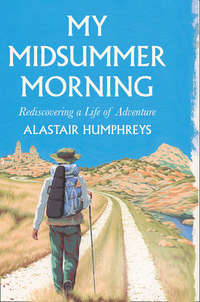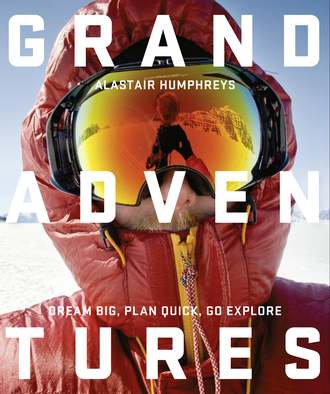
Полная версия
Grand Adventures

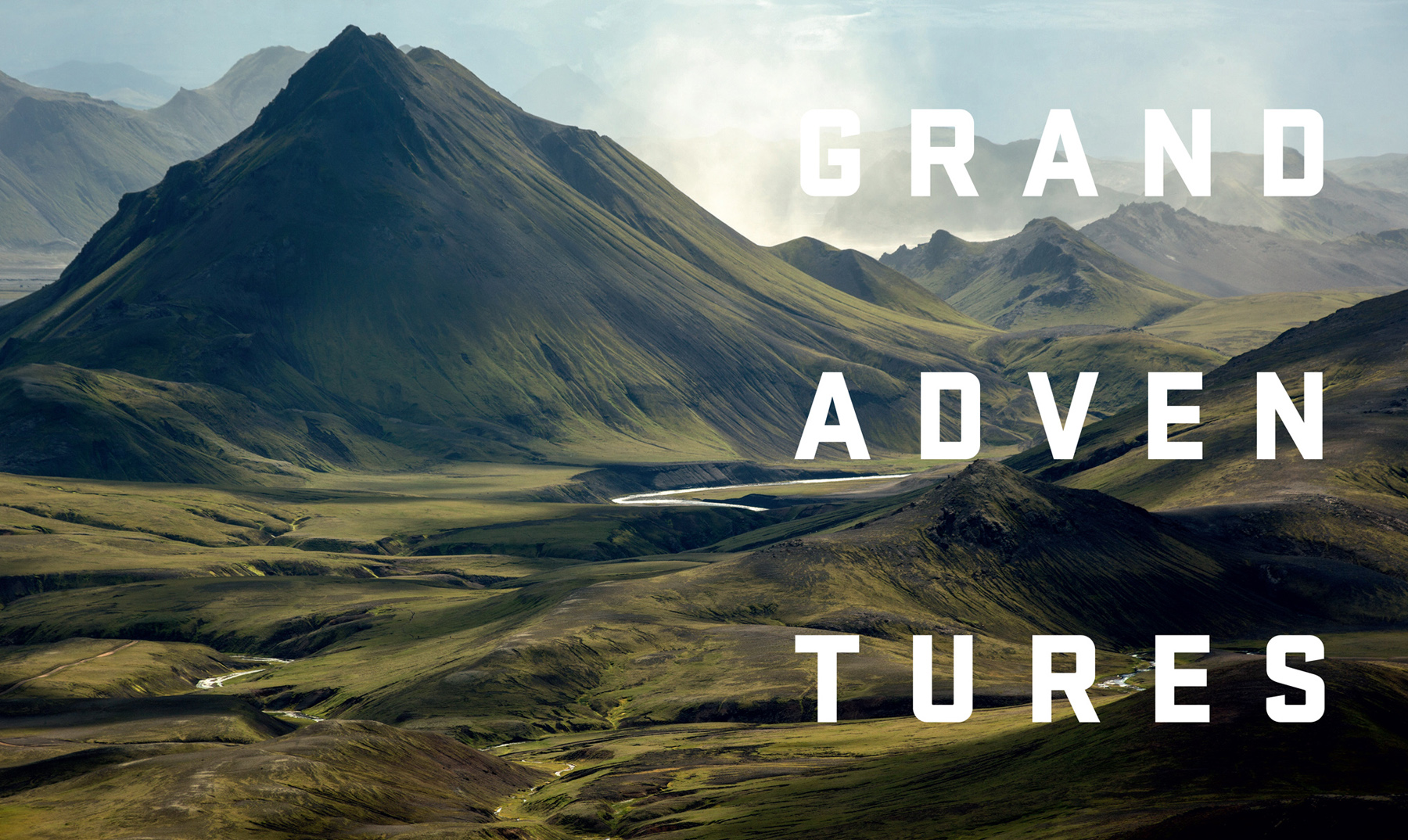
COPYRIGHT
William Collins
An imprint of HarperCollinsPublishers 1 London Bridge Street London SE1 9GF
WilliamCollinsBooks.com
This eBook edition published by William Collins in 2016
Text © Alastair Humphreys, 2016
The author asserts the moral right to be identified as the author of this work.
Cover photograph © Alastair Humphreys
Cover design by This Side
A catalogue record for this book is available from the British Library.
All rights reserved under International and Pan-American Copyright Conventions. By payment of the required fees, you have been granted the non-exclusive, non-transferable right to access and read the text of this eBook on-screen. No part of this text may be reproduced, transmitted, downloaded, decompiled, reverse engineered, or stored in or introduced into any information storage and retrieval system, in any form or by any means, whether electronic or mechanical, now known or hereinafter invented, without the express written permission of HarperCollins Publishers.
Source ISBN: 9780008129347
Ebook Edition © March 2016 ISBN: 9780008131944
Version: 2016-03-03
For my parents,
Who taught me to save up, work hard
and make stuff happen.
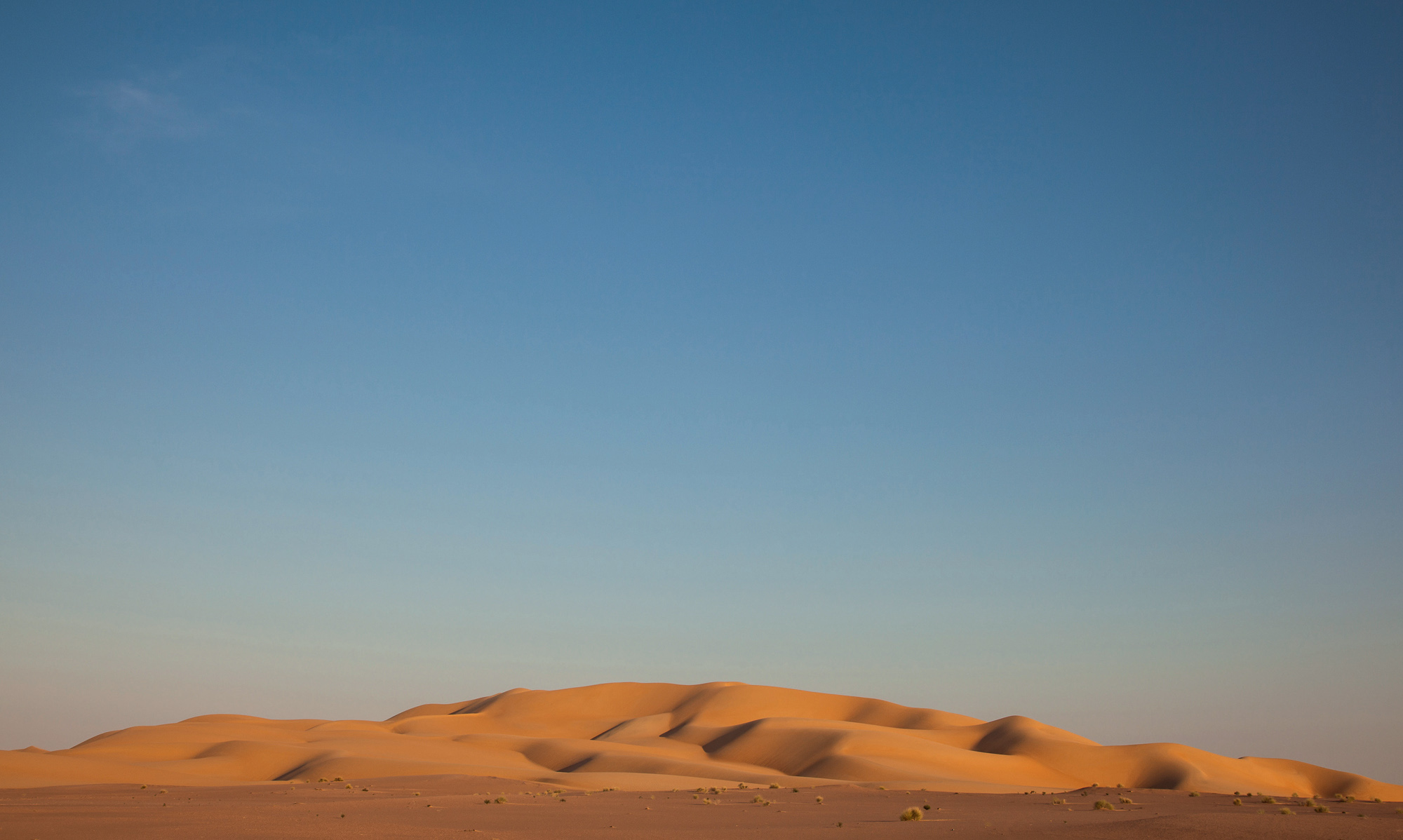
© Alastair Humphreys
CONTENTS
COVER
TITLE PAGE
COPYRIGHT
DEDICATION
INTRODUCTION
Part 1 PLAN
MONEY
TIME
COMMITMENTS AND RELATIONSHIPS
HATCH A PLAN
KIT LIST
Part 2 CHOOSE
BICYCLE
FOOT
ANIMAL
WATER
MOTOR
TRAVEL
CLIMB
EVERYDAY
GRANDER
BIOGRAPHIES
INDEX
ACKNOWLEDGEMENTS
ABOUT THE PUBLISHER
INTRODUCTION
Everyone loves adventure. Bookshops have bulging travel sections. Adventure film festivals are springing up all over the world. The web groans with exciting expedition blogs. I love adventure so much that I turned it into my job. I am a professional adventurer. It says as much on my business card, so it must be true. (Never mind that I made them myself in one of my many procrastinating-from-book-writing mornings.) I write books, give talks and make films about the adventures I’ve done, such as cycling round the world, crossing oceans or staggering through the heat of deserts. Enough people enjoy hearing these stories for me to earn a living from them. This means that more people read about adventures than go on big trips themselves. But this book aims to help you realise that grand adventures are within your grasp, that you can begin taking the steps necessary to make them happen for you, too. Why settle for reading about adventures when you could be out in the wild doing them yourself?
‘Why settle for reading about adventures when you could be out in the wild doing them yourself?’
Many of my friends are also adventurers. They’ve climbed great mountains, trekked to the Poles, exciting stuff like that. These are special experiences. I love sitting in the pub with my adventurous friends, listening to increasingly far-fetched tales as last orders approaches. But here’s an important thing: I know these guys and girls well enough to see that they are not particularly special people. They are ordinary people, but they do things that many people deem to be more than ordinary, even extra-ordinary. Being an adventurer is not a genetic gift. I know, for example, that I certainly am not brave, strong or athletic, yet I claim to be an adventurer. Usain Bolt was born fast. Albert Einstein was born brainy. Living adventurously, however, is nothing more than a choice.
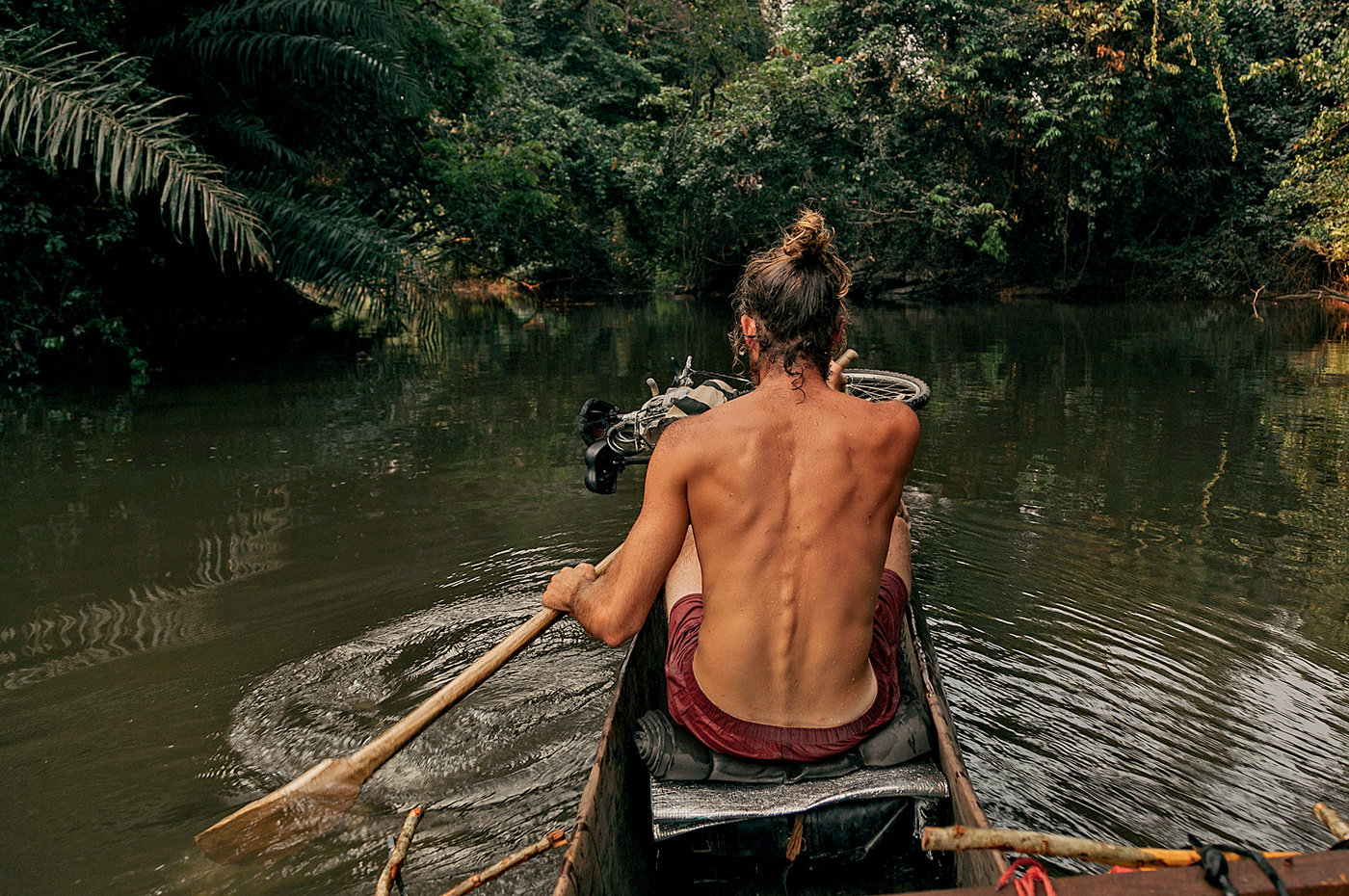
© Archie Leeming
When I left university I made the choice to make the best I could of my abilities and resources and see how far I could ride my bike. I didn’t have a fancy bike. I didn’t ride fast. I didn’t spend much money. I got lost a lot. I napped under trees. I carried a bicycle repair book because I had little idea about bottom brackets or rear derailleurs. And yet I eventually succeeded in cycling the whole way round the world. I spent £7000 on the four-year trip. I did not choose to do it on such a shoestring: it’s just that this was the sum total of my worldly wealth. I preferred to get going and make it happen rather than saving and saving and never beginning. Four years of banana sandwiches was a small price to pay for eking out my money into so many memories.
When people dream of adventure they are generally not discouraged by the difficulties of the journey itself. Extremes of heat and cold; basic and uncomfortable conditions; the physical and mental struggle: these are actually often part of the appeal! The struggle, many of us feel, is preferable to boring routine.
So what is it that actually gets in the way, if not the hazards of the wild? Why do lots of people long for adventure and enjoy reading about it but not many actually get out there and do it?
I didn’t think that it could be explained by a lack of practical skills, fitness or equipment. It’s not as concrete as that. I guessed that what inhibits most people are the mental barriers in their head: it’s too hard, too scary, too uncertain…
Through my blog, I decided to ask what it was that stood between people and the adventures they dreamed of. From around 2,000 responses, here are the most common issues:
— Time
— Money
— Family / partners / commitments
— Fear
— Society pressure
— No companion to go with
— Getting time off work
— Getting work afterwards
And these were mentioned, too:
— Solo female travel / safety
— Lazy / procrastination
— School holiday system
— Lack of knowledge
— Ideas
— The unknown
— Kit / logistics
— Lonely
— Fitness / health
I found it fascinating that not one person mentioned the worry of falling down a crevasse or getting eaten by a tiger. The greatest obstacles to people’s adventures all lie before the journey even begins. In other words, getting to the start line is the hardest part!
Wrestling snakes, paddling rapids, tying a bowline with your teeth, pitching a tent in a typhoon: all this stuff is so much easier than getting off the sofa, committing to action and beginning.
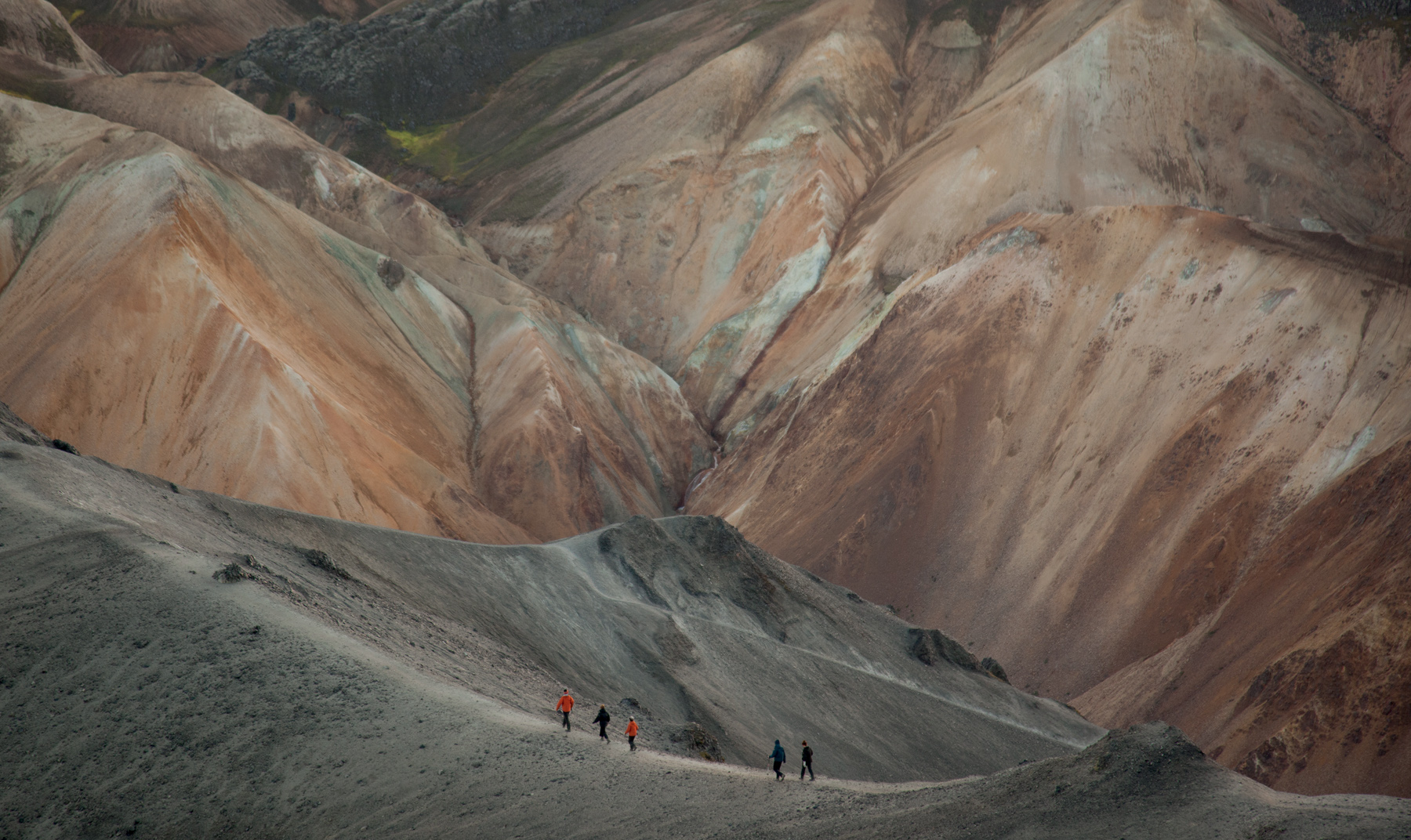
© Alastair Humphreys
A similar example sometimes happens out on an expedition: leaving the tent when a blizzard is howling outside and your sleeping bag is snug can feel nigh on impossible. But when you do get out (it’s usually a weak bladder rather than a strong will that eventually forces you into action), the world is never as grim as you’d imagined it to be from the safe cocoon of your sleeping bag. The raging blizzard you’d pictured is often just a bit of windy snow. Feeling sheepish, you pack away the tent and get on with the journey.
What’s more, the practical preparations for launching a journey are also far easier than mustering the cojones to commit in the first place, to do something difficult and daunting and daring with your life.
There is a lovely Norwegian phrase that translates into ‘the Doorstep Mile’. It refers to how hard it is to begin something, how hard it is to get out your front door and commit to action. This book helps tackle the Doorstep Mile.
‘Do you dream of having a massive adventure but can’t see how you will ever get the chance to do it? If so, this book is for you!’
The first half of the book tackles the barriers that make it hard to begin. The second half helps you choose which adventure is right for you.
Do you dream of having a massive adventure but can’t see how you will ever get the chance to do it? Do you long to explore but don’t know how to begin? Do you look enviously at other people’s trips but think it’s not what ‘people like you’ do? If so, this book is for you!
My aim is to help you commit to begin planning your dream adventure, to get you in motion. That’s all. After that, the rest is easy – and up to you.
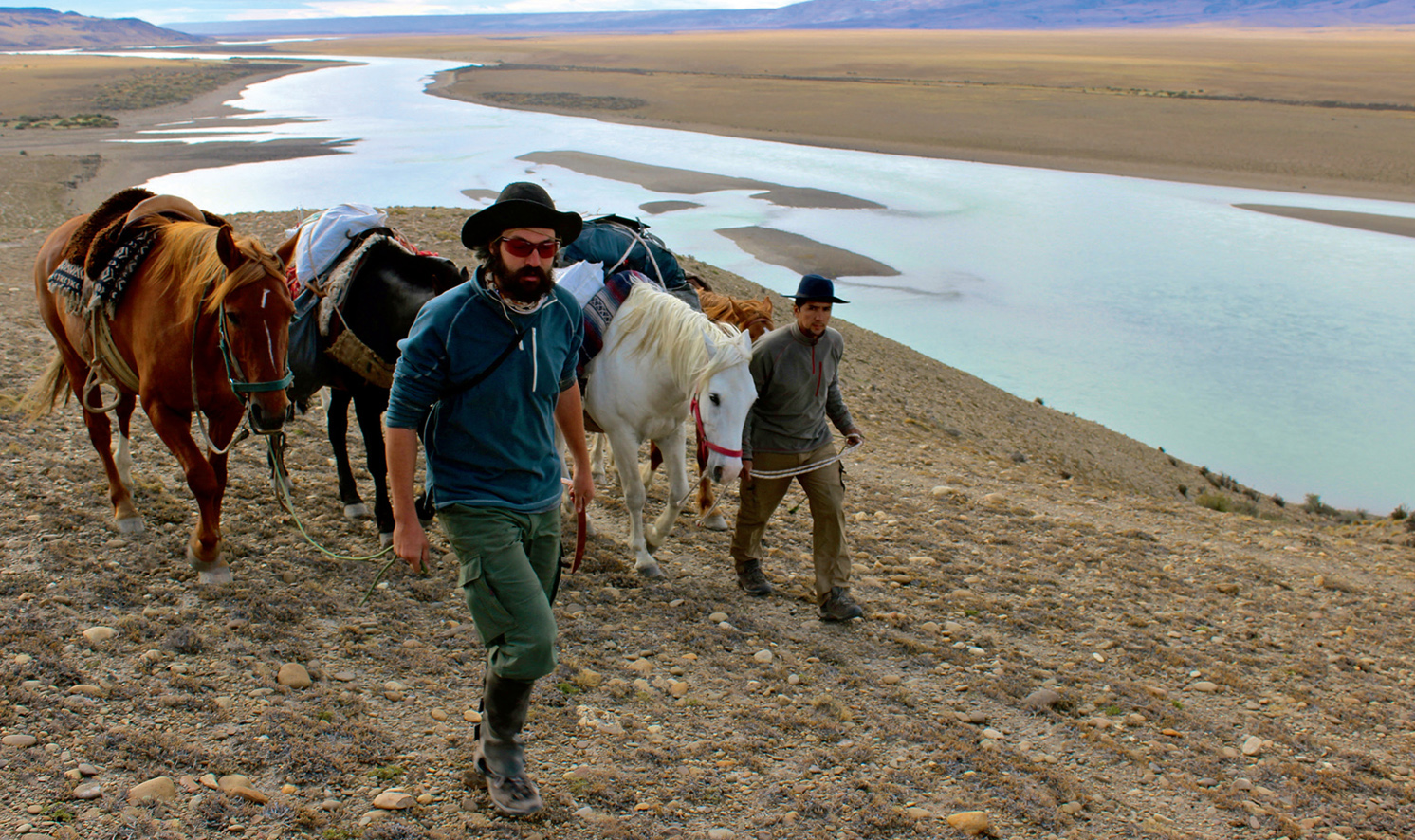
© Leon McCarron
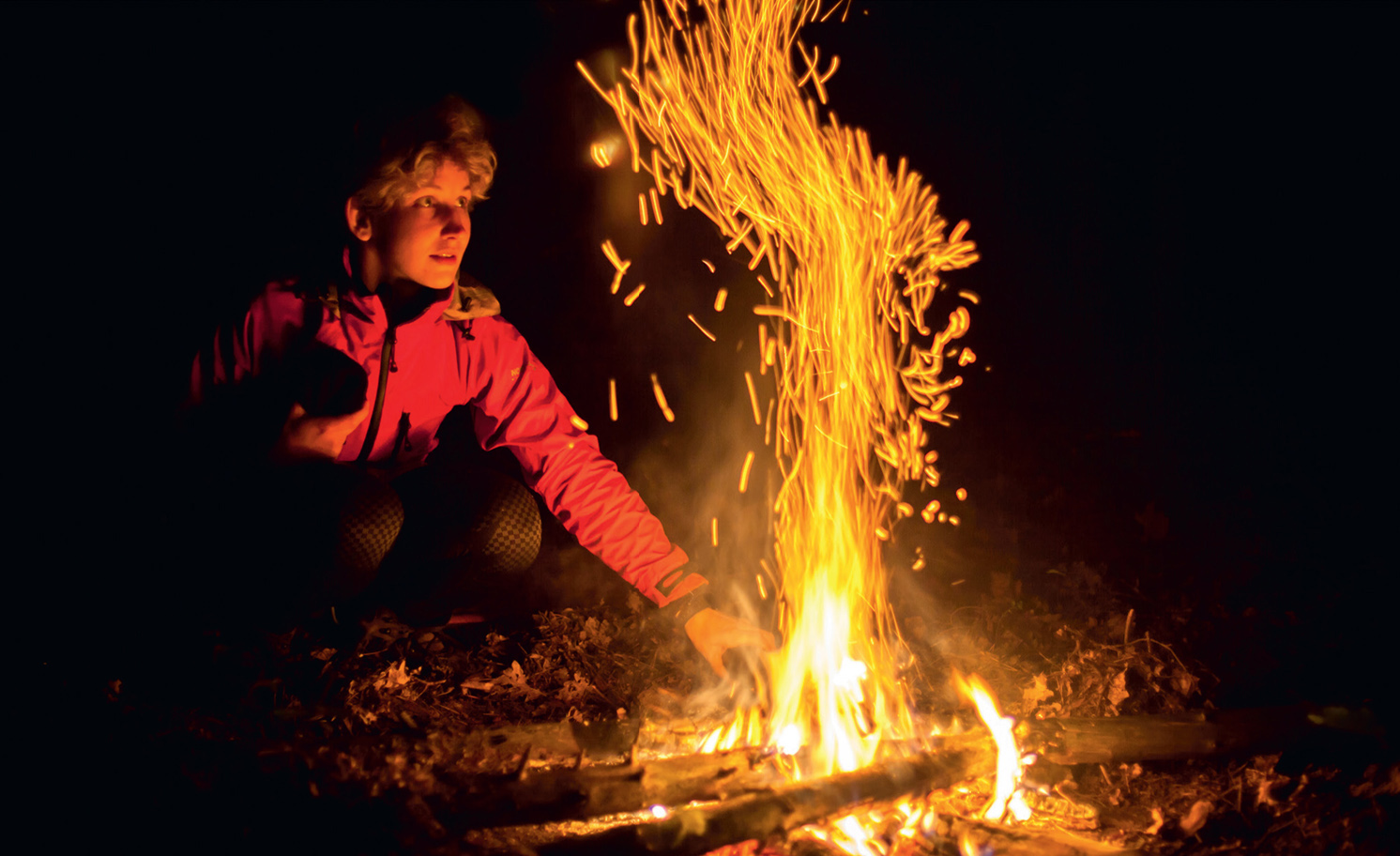
© Alastair Humphreys
This book helps you shine a spotlight on what is getting in the way of the most amazing, life-changing, career-enhancing, personality-forging, memory-making adventure of your life. If you really, truly want to experience a big adventure, you can do it. You can do it. You can. Grand Adventures looks at the obstacles stopping you and shows that there are ways round them, if you choose to do it. Will you?
I spent an absorbing year interviewing many adventurers for this book, seeking hard-won wisdom from people who have been there and done the kind of trips we all dream of. I’m only sorry there was not space to include them all. (The in-depth interviews are all available to read on www.alastairhumphreys.com/GrandAdventures.) They’ve done it all: Everest, the North and South Poles, the Amazon and Sahara, all seven continents, the oceans – even going up to Space! All of them once took that huge step of committing to their very first adventure. I hope that you will take inspiration from them because they were once just like you: itching to hit the road but nervous about how to make it happen.
There are stories and photographs from men and women who have travelled by boat and boot, car and kayak, bike and motorbike, home-made raft and hi-tech spaceship. People who had one great trip then returned to normal life. Those bitten so badly by the bug that they devoted their life to the pursuit of adventure. There’s youngsters and old folks; men and women; mates, couples and families; fit, fat or disabled. Extraordinary, inspiring people. People like you.
The only thing that stands between you dreaming of adventure and you being an adventurer is committing to it. Together, we’ll show you that, whether it’s cycling to the Sahara, walking across Australia or rafting the Amazon, the longest journeys really do all begin with a single step. They are, in fact, nothing more than lots of tiny, easy steps. Tiny, yes; easy, yes, but you’ve still gotta take ’em.
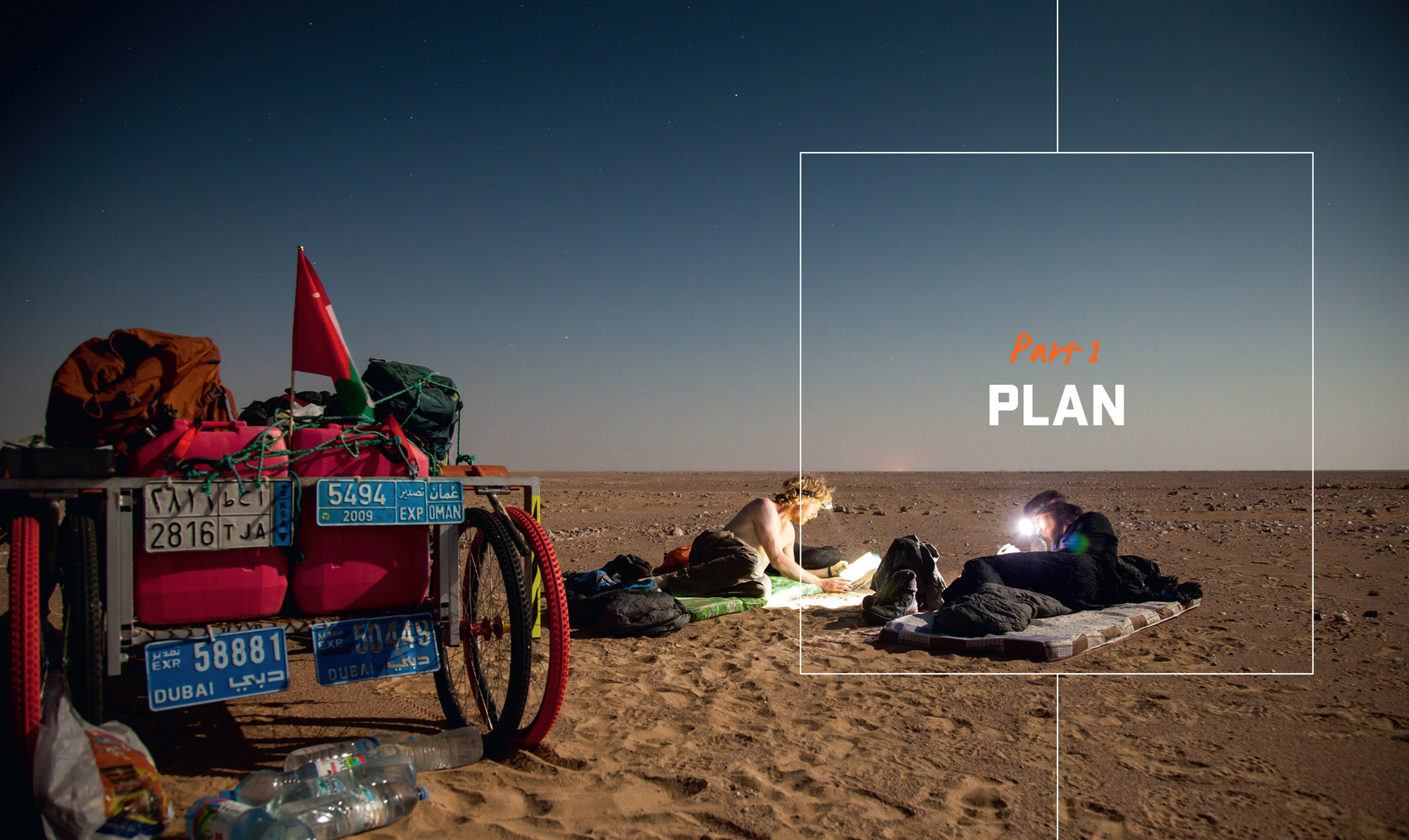
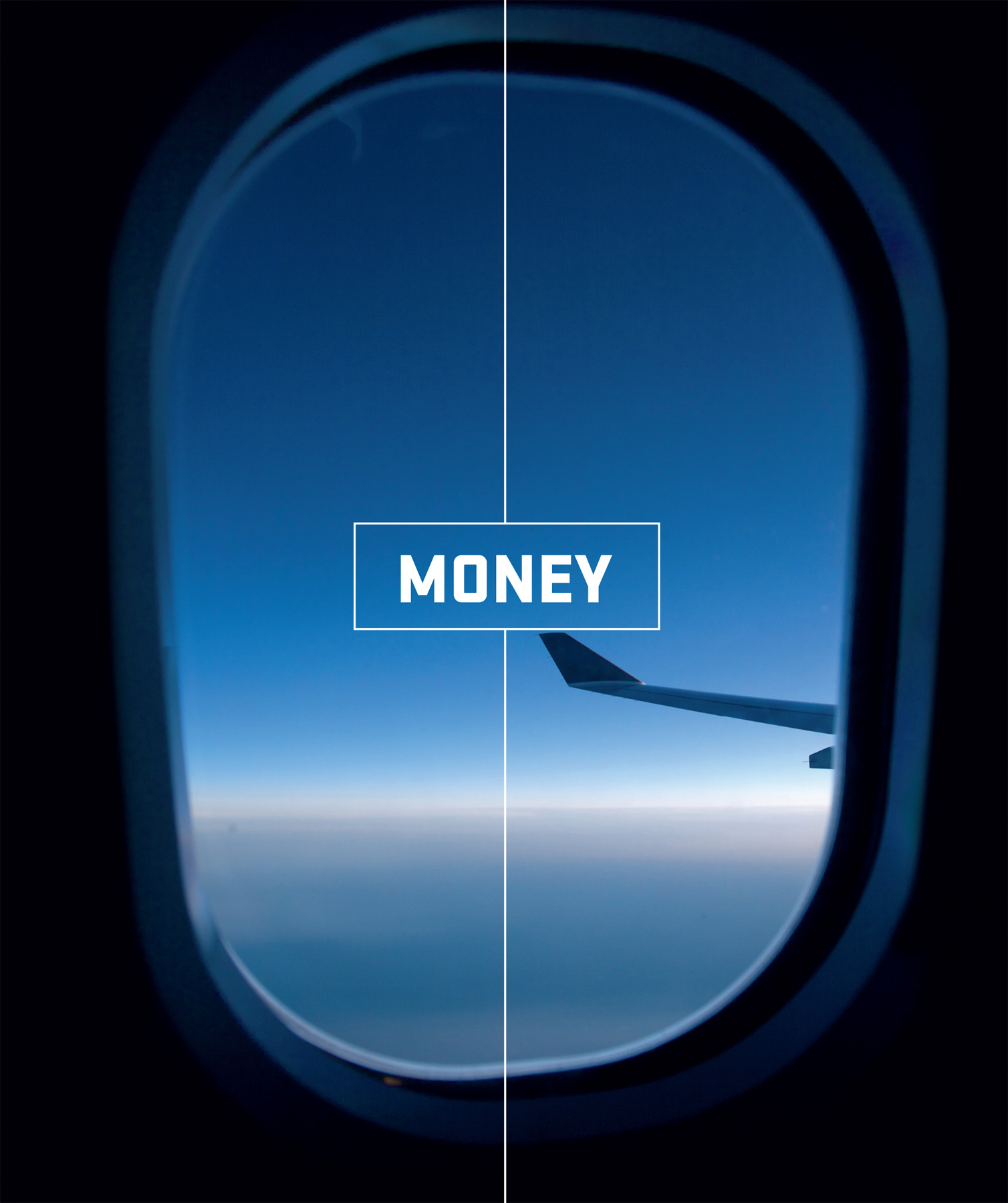
Most people cite money as one of their big worries in life. It’s certainly seen as the largest obstacle to adventure. When people say to me ‘I’d love to do a big adventure, but…’ it is usually money that appears to be stopping them.
People who daydream about winning the lottery often say, ‘I’d go and see the world. I’d have an adventure!’ But you won’t win the lottery. That’s not the way the world, or probability, works, alas! (Especially if you’re not wasting your money on lottery tickets in the first place and instead are saving for an adventure.)
Will you just accept that because you won’t win the lottery you won’t have that dream adventure? Or maybe you’ll settle for doing something when you retire? (Gambling on the hope that you are not dead or decrepit by then…)
Before you do, there are two vital things to realise about money and adventures:
Adventures can be much cheaper than you might imagine. Not only that, it’s relatively painless to save enough money without having to rely on a lottery ticket.
If I can demonstrate that the biggest hurdle is easy to get over, hopefully it will convince you that any other obstacles in your way can be fixed, too.
When it first dawned on me, this simple little sum stopped me in my tracks – for its simplicity, and for its implications.
If you put aside £20 a week, within a year you will have saved £1,000. One thousand pounds. In all its glory, a thousand quid…
£20 is not a particularly large amount of money for me, and that’s probably the case for many of us who are in the privileged position in life of even being able to dream of adventures. I spend £20 in the pub, or on a meal to cook for a few friends. £20 is within my financial comfort zone.
But £1,000 does feel like a large amount of money to me. For much of the world, of course, it’s an impossibly vast sum. For some people it’s mere loose change. But I imagine that most people reading this book are, approximately, on a similar financial level to me: £1,000 sounds like a lot of money, but it’s more or less achievable if I set my mind to saving £20 a week.
I know from experience that £1,000 is enough to fund a phenomenal trip. I once flew to India, walked from one coast of the country to the other, and then flew back home for far less than that. I have cycled thousands of miles through extraordinary places for £1,000, a grand adventure. Almost all of the trips I have done – including canoeing the Yukon, crossing Iceland and cycling round the world – I funded by saving up my own money and then doing the trip as cheaply as I could manage.
If you travel under your own steam, eat inexpensive food and sleep in a tent then expeditions don’t cost much once you’ve bought the essential equipment and plane ticket.
Some of my more recent trips, in places such as Greenland and the Atlantic, have required sponsorship, because they’re beyond the depths of my wallet. But I’m a strong believer that you should walk before you run. Building up a solid CV of expeditions will help you secure sponsorship further down the line, but the best thing to do is begin with exciting projects that you can pay for yourself. Some of the journeys described in this book are expensive, but the lessons you can draw from them will help with any debut, budget expedition.
Saving a little bit of money regularly and seeing how that accumulates into a large amount is a handy metaphor for everything in this book. Things that seem daunting at first are not nearly so bad once you begin chipping away. Start small, but do start. Start rubbish, then get good along the way.
I have chosen £1,000 as a pretty arbitrary figure upon which to hang the adventures in this book simply because I loved the neat simplicity of putting aside £20 a week then hiking off into the sunset a year later. You can do something amazing for less than £1,000, although many journeys will cost more than that. It doesn’t really matter; this is not the book to help you with detailed budget planning. It’s simply the spark which, I hope, will light the fire inside you and get you to commit to the journey of a lifetime. After that, you’re halfway there.
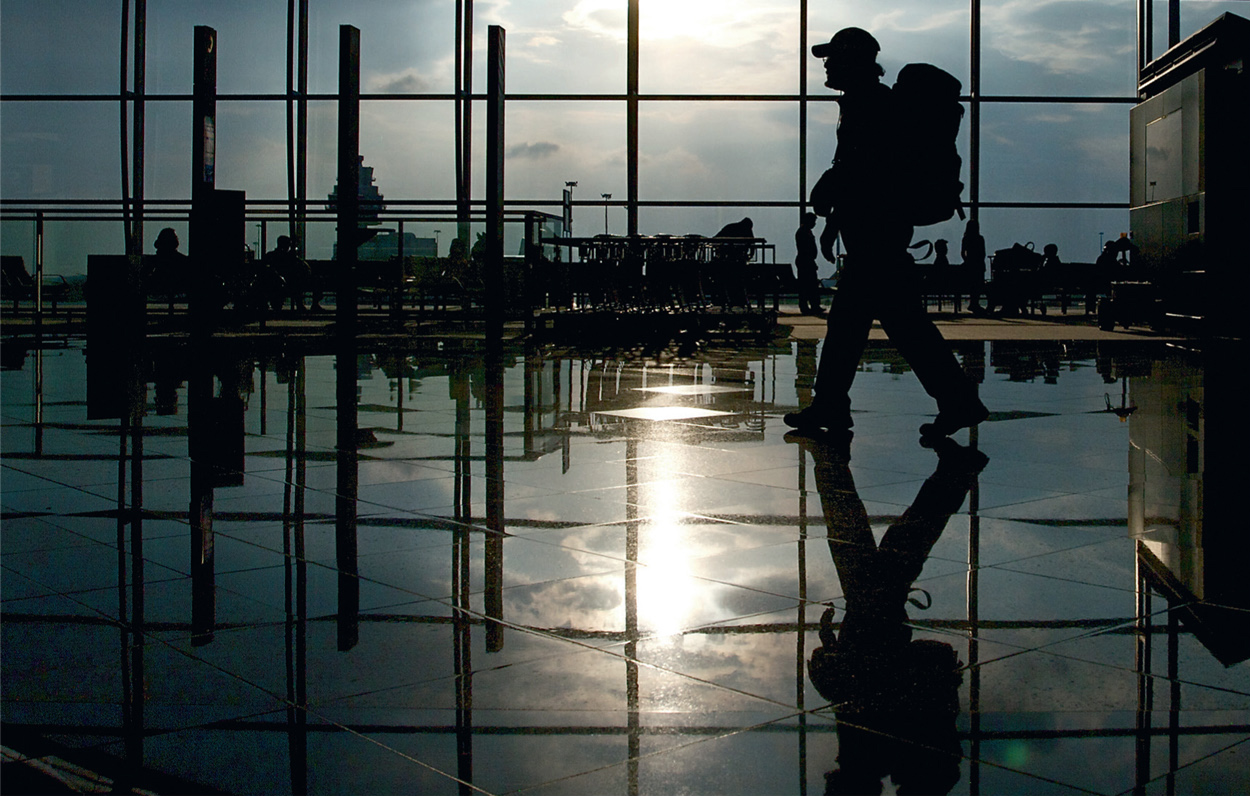
© Alastair Humphreys
A more useful way of thinking about expedition budgets than absolute figures such as ‘£1,000’ is to consider how long it takes you to earn the money. There is the absurd social convention of spending between one and three months’ salary on an engagement ring. (If anybody ever proposes to me I would far rather they spend that money on a grand adventure for the two of us than a highly squashed pebble.) So rather than focusing too much on the notional figure of £1,000, perhaps you should try to think about what fraction of your income you’re able to save for an adventure.
Throughout this book, never think, ‘I can’t do that’. Instead, try to think of a way round the difficulty that still fits within your particular circumstances. If you can’t afford to save £20 a week, save £10 instead: you’ll still get there in two years. Just put aside what you can when you can. More often than not, replacing the words ‘I can’t do that’ with ‘I choose not to do that’ will give you an honest insight into how much you truly want to make something happen. Are you really in the position of saying ‘I can’t save £20/£10/£5 a week’ or is it more like ‘I choose not to save £20/£10/£5 a week’?
If I gave you £1,000 to go on an adventure, what would you go and do? Grab a pen and write a list of ideas. Physically write them, don’t just think it – you’re more likely to make stuff happen if it’s set down in black and white.
I am not actually going to give you £1,000. I’m a Yorkshireman. However, I am going to help you begin saving it. If you can save up that much money and therefore eliminate the biggest perceived barrier that stops people having the adventure of their lives, what else can stop you making this thing happen?
HERE ARE A FEW SUGGESTIONS FOR IDEAS OF ADVENTURES YOU COULD HAVE FOR £1,000:
‘I would go south, hitch-hiking into Africa.’
Steve Dew-Jones, hitch-hiked to Malaysia.
‘I would leave the front door with my camping kit, and I’d just walk. It’d be really interesting to walk without a destination, away from home day after day. It wouldn’t be very expensive, so that £1,000 might last a very long time.’
Hannah Engelkamp, walked 1000 miles round Wales with a donkey.
‘I’d jump on a skateboard and go around India.’
Jamie McDonald, ran 5,000 miles across Canada.
‘I’d go climbing illegally in China – it’s the permits that cost so much. Or I’d go somewhere you don’t really need permits, like Kyrgyzstan or Tajikistan.’
Paul Ramsden, climbed ‘lots of big mountains’.
‘I’d cycle to Istanbul. If I made sure my bike was fairly worthless, I could leave it there and then just fly home for £70 at the end.’
Tom Allen, cycled, packrafted, walked, hitch-hiked and rode horses on five continents.
‘I like the idea of sea kayaking from Finland to Sweden through the archipelago.’
Karen Darke, Paralympian and expeditions by bike, sea kayak and sit-ski.
‘I would sail out to the West Face of Ball’s Pyramid and climb it: it’s only 2,270 foot high, but 312 miles off the east coast of Australia.’
James Castrission, kayaked the Tasman Sea.
‘I’d like to walk to the midnight sun. Set out from home and walk north up to the Arctic Circle.’
Sean Conway, first person to complete a ‘length of Britain’ triathlon.
Some people may consider spending £1,000 on adventure to be a flippant use of money. I know that it is not saving the world, but I suspect that, when I’m on my death bed, I’ll be more grateful for the experiences that adventures have given me than for spending that amount of money on things like a massive TV or a trendy handbag.
You know that when you are old and looking back on your life you’d prefer to remember a bike ride through Borneo or a train journey across Tibet rather than the extra work you did and the extra £1,000 you’re going to have to pay death duty on. So why don’t you get out there and do it?
THERE ARE TWO WAYS TO GET MORE MONEY IN LIFE:
Earn more. Or spend less. I’m definitely not the right person to advise with Point 1, but here are some ideas to help you begin spending less money.
Remember, in order to save £1,000 for your adventure you need to save less than £3 each day for a year.
Think about all the ways you spend money and where you can make some savings. Consider the small changes you can make which will help lead to a big adventure and a big change in your life. I’m not advocating anything drastic, just tiny tweaks that won’t hurt day-to-day but will accumulate into big piles of cash. If you think you’ll struggle, try writing down every single thing you spend in the course of a week – you might be surprised where you can make some savings for your Adventure Fund.
If you’re serious about saving money, do some Googling: there are blogs more knowledgeable and specific on the subject than I could ever pretend to be. But I hope this section will get you thinking. All the examples below are worth trading for the adventure of a lifetime, especially as they generally make your life healthier anyway.
— Daily routine: Cut out a daily takeaway coffee and you’ve almost made it to £1,000 in a year already. Take a packed lunch to the office and you’re really saving.
— Commuting: Can you work from home occasionally? Can you share a lift or cycle one day a week?
— Home bills: Turn your thermostat down a notch and put on a jumper. Wash your clothes at a lower temperature. Have an occasional cold shower (they are good for the soul, the environment and your bank balance!). Sell your telly.
— Entertainment: Eat out less often or search online for restaurant discount vouchers.
— Alcohol: A pint in a London pub often costs £5. One fewer pints a week and you’ve saved almost 25 per cent of your £1,000. If you’re tempted for ‘just one more’, consider that the price of that drink can easily equate to a day on the road in some of the world’s wildest, cheapest and most exciting regions. Which would you rather have? Beer tastes better on a beach in Belize anyway!
— Smoking: Stop it.
— Eat more veg: An average UK family spends £5,300 per year on food. A moment’s Googling leads me to a site of recipes that will feed a family for just £1,168 per year.
— Stick to essentials: Only buy stuff you really need. We all suffer from ‘stuffocation’. Look around your house and ask, ‘Do I need this?’ When did you last use or wear some of it? Would you miss it if it were gone? Sell ten things on eBay and transfer the proceeds to your Grand Adventures fund. eBay is a great place to buy all the kit you need for your adventure, too. You can save a fortune this way.
I hope I’ve demonstrated that saving £1,000 is achievable through taking small steps. Remember that the same metaphor applies to all the other obstacles standing in your way. Overcoming inertia, generating momentum, getting out the front door, beginning: if you want it enough, you can do it.
Tiny steps. Grand adventures. Are you in?
WISE WORDS FROM FELLOW ADVENTURERS
JAMIE BOWLBY-WHITING
HITCH-HIKED THOUSANDS OF MILES, RAFTED THE RIVER DANUBE AND WALKED ACROSS ICELAND
It is possible to travel entirely without money by a combination of free camping, Couchsurfing and foraging.
HANNAH ENGELKAMP
WALKED A LAP OF WALES WITH AN ECCENTRIC DONKEY
Money-wise, if you do something that involves walking and camping, it’s likely to be an awful lot cheaper than ordinary life. Really, it’s a matter of getting your head around stopping what you’re doing now and just doing something completely different.
DAVE CORNTHWAITE
MADE 25 NON-MOTORISED JOURNEYS
I learned to just downsize my life and limit my outgoings, which I think is a nice lesson overall.
ALICE GOFFART & ANDONI RODELGO
CYCLED ROUND THE WORLD FOR SEVEN YEARS
During those years, including having two children on the way, we spent less than €50,000. That’s what some people spend on a car, and nobody asks them how they did it.
ANTS BOLINGBROKE-KENT
NUMEROUS VEHICLE-POWERED EXPEDITIONS
My money diet mantra was ‘no unnecessary spending’. The only clothes I bought were off eBay or from charity shops (difficult as a lover of fashion). I made sure my saving didn’t overly impact on my relationship, though. This adventure malarkey can be rather selfish and I wanted to save cash, but that couldn’t mean becoming a miserly bore.




